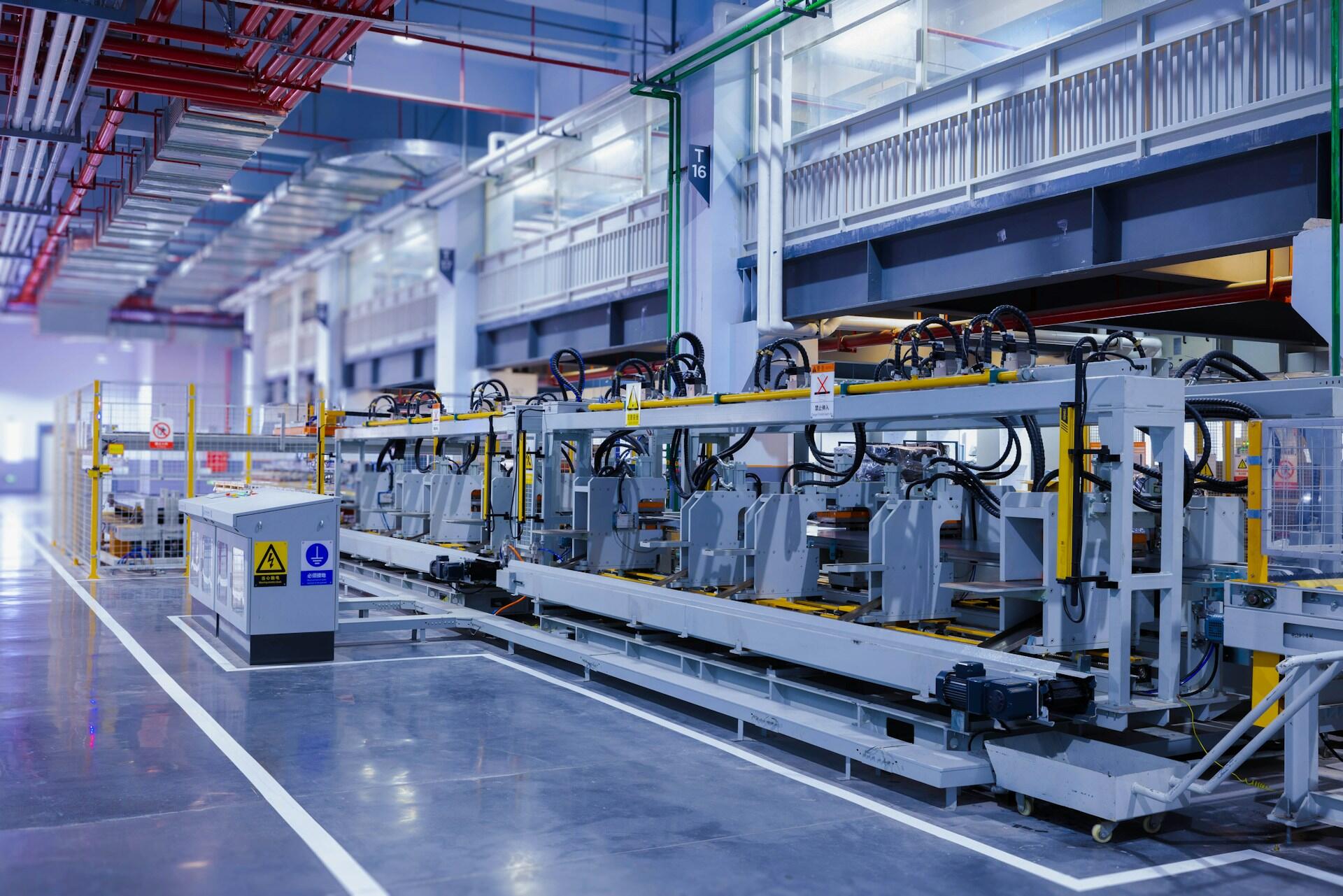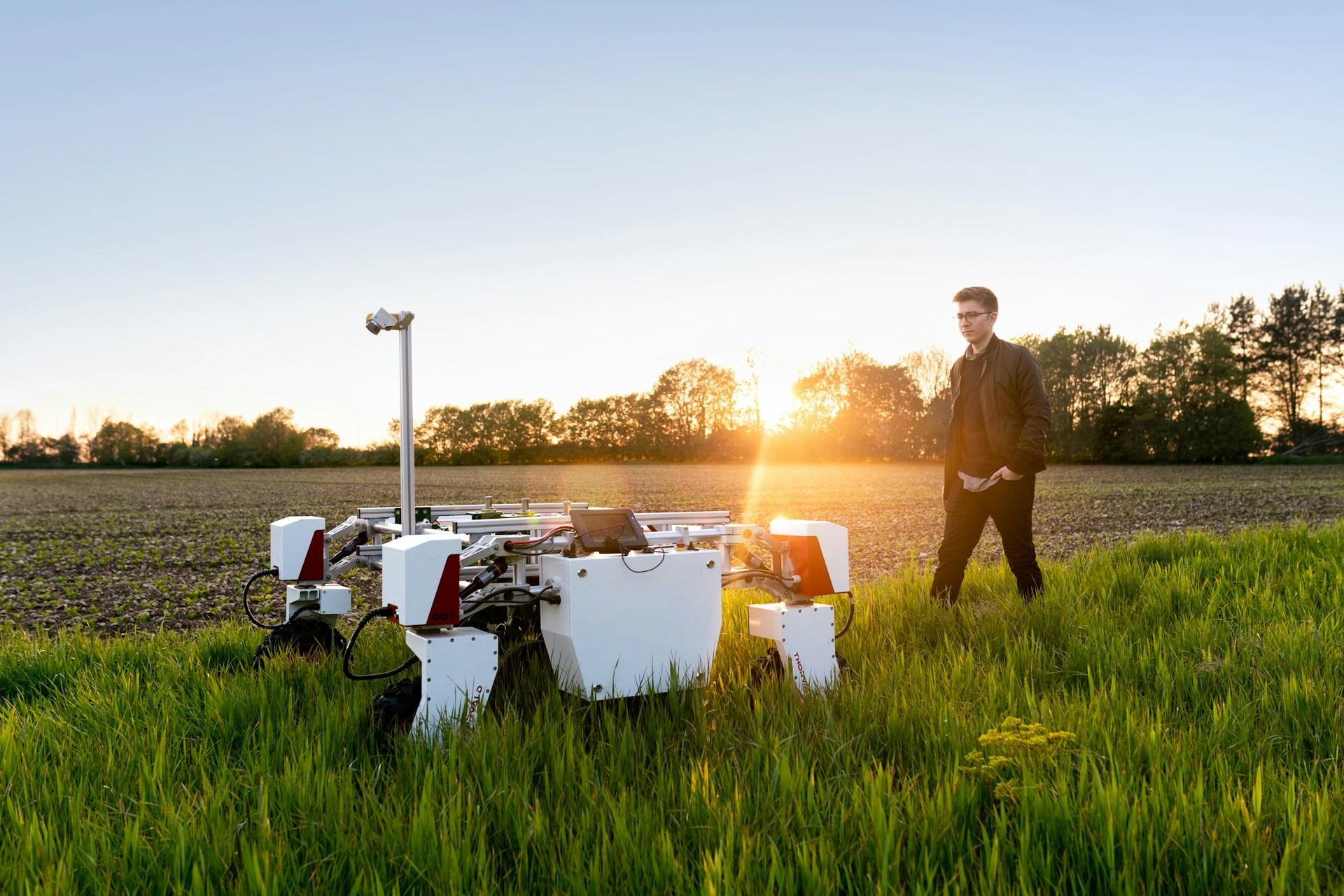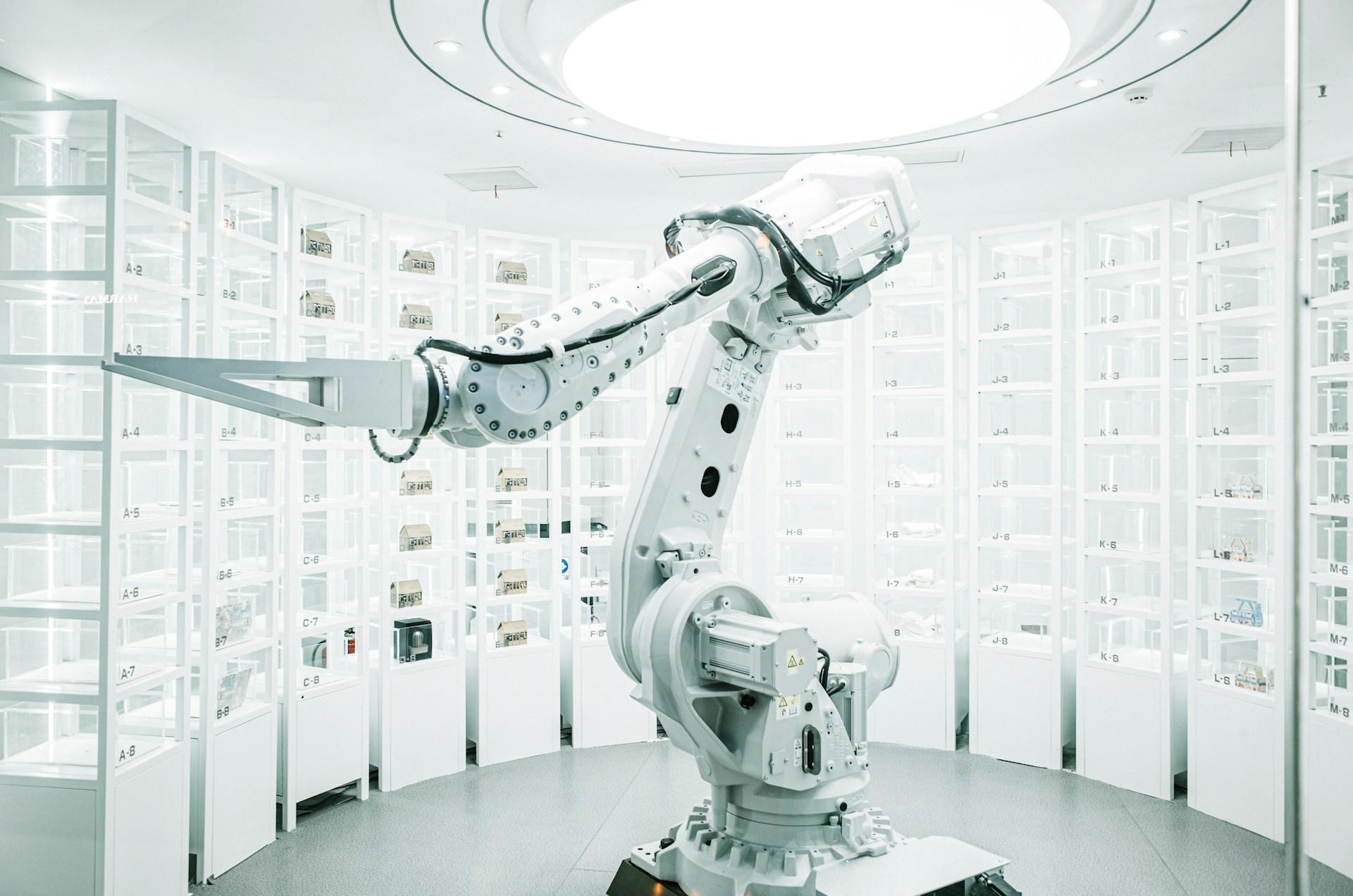What all of us have to do is to make sure we are using AI in a way that is for the benefit of humanity, not to the detriment of humanity.
Tim Cook
There's this ongoing debate about the roles of humans and artificial intelligence (AI) in the workplace. Are humans doomed as the rise of AI signifies that they will one day take over our jobs? Many people have said that efficiency is valued above the human touch, but is that really the case?
Countless researchers and experts have tried to lean in with their opinions, but one particular stance stands out — AI cannot replace humans, but humans with AI knowledge will replace humans without them.
Regardless of where you're from, one significant career that revolves around artificial intelligence across multiple disciplines is none other than an artificial engineer. In this article, we will discuss the impacts of an AI engineer in Canada on these five industries:
Key Industries that artificial intelligence engineers work at:
- Health and Medicine
- Manufacturing and Distribution
- Energy and Agriculture
- Transportation and Logistics
- Finance and Banking

🩺Healthcare and Medicine: Analysis and Accuracy
You'll be surprised to learn that AI engineers work together with biomedical engineers and data scientists to develop and design diagnostic tools and systems to come out with accurate analyses of patients — a pivotal method to study diseases in the medical line.
Many years ago, this seemed impossible. What AI engineers will do in detail is develop the relevant algorithm model for the disease identification process, disease prediction progress, and patient segmentation through machine learning.
They would also analyse the patient's data, be it an X-ray image, magnetic resonance imaging (MRI) and computed tomography (CT) scans through a series of deep learning, for example through the convolutional neural network (CNN).
Machine Learning
- A subset of artificial intelligence
- Works with smaller, structured medical data
- Applies manual human training first before running the software
- Shorter training time (low computational power)
Deep Learning
- A subset of machine learning
- Works with larger, unstructured medical data
- Automatical learning from the raw data
- Longer training time (high computational power)
A combination of these two skills that AI engineers possess allows health practitioners to make informed decisions based on a clearer analysis of the patient's data to improve the accuracy of their diagnosis, whether it's to improve early detection of disease or come out with personalized medication treatment for each patient.
🏭Manufacturing and Distribution: Productivity and Precision
Next, let's talk about how automation plays an essential role in the manufacturing and distribution industry, especially in the context of the Fourth Industrial Revolution. This is where we see a large-scale advancement of computer systems, robotics, smart sensors, and the Internet of Things (IoT).
Artificial intelligence is widely used to reduce operating expenses (especially human labour) and detect and minimise human errors, which in turn increase productivity rate without sacrificing quality. Robotics and the application of automated machines are particularly popular in the food and beverage industry to promote good waste management and enhance environmental sustainability in Canada.
A concept popularised by Klaus Schwab, the founder of the World Economic Forum which details the strong integration of automation of the manufacturing sector through digital technologies, especially artificial intelligence like machine learning.
To facilitate the whole operation, artificial engineers help to develop predictive maintenance programs using IoT data by capturing important data of the manufacturing environment such as voltage, temperature, humidity and other variables.
When it comes to mass production, an artificial intelligence engineer also builds algorithm design models and programs to optimize the supply chain processes from the beginning of creating a product from the raw materials, manufacturing, packaging, cleaning, shipping, and warehousing before the product is ready for delivery.


👨🌾Energy and Agriculture: Sustainability and Sustenance
Did you know that Canada is home to some of the biggest renewable energy companies in the world? Additionally, our country is also known for being one of the top five exports of sustainable agriculture products.
Artificial engineers are responsible for developing and designing smart grid systems to manage and distribute various renewable energy sources like solar energy and wind energy. These grid systems are usually paired with smart sensors and IoT technology to allow fast and accurate transmission of data — how much energy is actually needed according to supply and demand for different areas.
Of course, artificial intelligence engineers also contribute to the development of various AI-powered agriculture tools for the following functions:
Many times, an artificial intelligence engineer has to work with a data engineer or a data scientist to create a conducive farming experience. The team has to capture the right data from satellite imagery and sensor machines before they come out with the right neural networks or a robotics software program to detect nutrient deficiencies present in the soil or diseases in the crop through deep learning for instance.
When energy and agriculture products are optimized, it will improve the career of many individuals in the field while contributing to a healthier and economically strong society.

🚘Transportation and Logistics: Optimization and Organisation
One of the most associated brands when we think about transportation and artificial intelligence is Tesla. At first, we get excited at the thought of self-driving cars, but now they are actually a reality thanks to the hard work and expertise of professional AI engineers over the course of time.
However, the role of an AI engineer in transportation goes beyond autonomous vehicles. The keyword here is optimization of data when it comes to ensuring safe and smooth traffic, for instance through the gathering of weather forecasts, and information management on road conditions in real-time.

On the other hand, AI engineers also constantly work on improving the user experience of navigation apps, like Waze for instance.
Under Google Cloud's AI platform, AI engineers, software engineers, and data scientists build different machine learning models to facilitate car-pooling service among drivers and non-drivers to improve traffic.
Apart from personal vehicles, there's also the urgency for a better organisation of logistics especially to speed up the shipment of goods without compromising on tracking details, which happens almost every day. Nowadays, all we need is a tracking code ( data generated through engineering software) to have an idea of when our next parcel will arrive.
It's no wonder that many people are considering engineering as a professional career in Canada, due to its job prospects and salaries.
💰Finance and Banking: Efficiency and Experience
We've arrived at our final point. An AI engineer is also crucial in the financial services industry. In recent years, it has been evident through the boom of financial technology (FinTech) especially through the rise of many mobile wallet applications and professional investment portfolio management for blockchain or even cryptocurrencies.
There's also a rise in chatbots and personalized financial advice from various banks to improve overall efficiency and customer experience for cases that require immediate attention. This is where the essential technical skills of engineers kick in, where AI engineers use their skills in natural language processing (NLP) models to gauge the customer's feedback (data) through sentiment and behaviour analysis — catering to different languages.
Of course, an artificial engineer also plays a significant role in terms of protecting bank users against fraud. For example, they will design multiple algorithm programs or build business intelligence analytics models to detect anomalies (irregular behaviours or patterns in a bank account/transactions) for any of your mobile or web banking applications.
Now that you have reviewed these five main job industries that artificial intelligence engineers usually work in, you probably want to dive deeper into this topic, as an engineering degree student who is job hunting or an AI enthusiast who is preparing to take professional programs or a graduate course in this field.
If you are a high school student who is passionate about becoming an AI engineer, you can check out some of the top universities in Canada which offer engineering. As you review their program and courses requirements, you'll realise that it's best to have a professional person to guide you in this field.
At Superprof, you can find an experienced and dedicated tutor who majors in artificial intelligence skills like Python programs, machine learning algorithms, and Java programming skills or a tutor who teaches Maths or Science subjects.

Start browsing a selection of tutors' profiles by visiting the Superprof homepage and indicating your desired subject and location.
You can opt for face-to-face lessons or flexible online lessons, depending on your schedule and learning duration (weeks or months).
As you read through the important information of each tutor's profile, you can learn about their education qualification (degree program or graduate studies), their engineer job experience (maybe working at International Business Machines Corporation (IBM), tutoring specialization (building generative language models, machine learning program, deep learning program), tutoring scope and most importantly, their hourly rates. What's best about learning from Superprof is that you get to set the maximum budget for the hourly rate after reviewing the average rate of lessons based on your subject and location.
Not only that, many Superprof tutors offer their first lesson for free too! So it's certainly an experience that future AI learners shouldn't miss.
Mark our words. You'll never regret equipping yourself with the knowledge of artificial intelligence technology, through courses, tutoring or an AI engineering degree certificate. If you eventually decide to turn it into a future career, that's great news too.
Summarize with AI:















